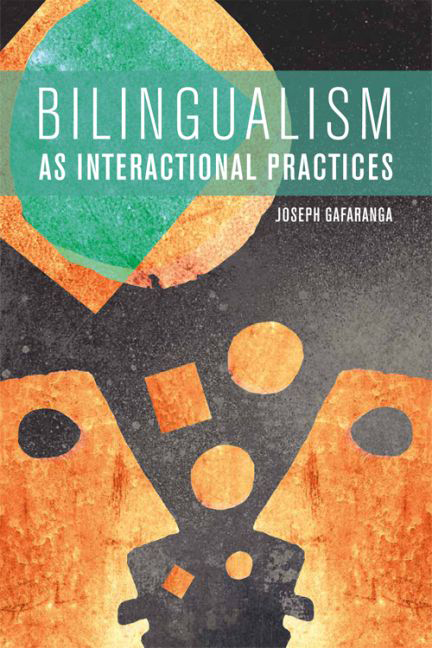
-
Select format
-
- Publisher:
- Edinburgh University Press
- Publication date:
- 26 April 2017
- 26 April 2017
- ISBN:
- 9780748675968
- 9780748675951
- Dimensions:
- Weight & Pages:
- Dimensions:
- Weight & Pages:
You may already have access via personal or institutional login
Book description
Foregrounds the practical usefulness of bilingualism, with specific reference to talk organisation.
Research on bilingualism and on code-switching in particular has traditionally been geared towards rehabilitating bilingualism and bilingual language use. From being seen as a sign of lack of competence, code-switching is now seen as a sign of high competence in the languages involved. However, this rehabilitation of bilingualism raises an entirely new problem: Where to from here? How can the study of bilingualism continue to be interesting and relevant?
In order to overcome the challenges the discipline faces as a result of its own success, here Joseph Gafaranga argues, the notion of bilingualism itself must be redefined. Bilingualism must be seen as consisting of diverse interactional practices and investigated as such. This book details the rehabilitation effort which has been undertaken to get us where we are today, proposes a methodology which can be used in moving forward and illustrates it with three case studies, all the while inviting other researchers to contribute to this new research direction.
Key Features- Demonstrates empirically how bilingualism can be thought of as a resource, drawing on data from a variety of sociolinguistic contexts
- Examines specific aspects of conversational organisation (such as turn-taking, sequence organisation, repair organisation) where language choice is used as a resource
- Investigates the role of language choice in bilingual conversation against the backdrop of clearly set out theoretical backgrounds
Contents
Metrics
Full text views
Full text views help Loading metrics...
Loading metrics...
* Views captured on Cambridge Core between #date#. This data will be updated every 24 hours.
Usage data cannot currently be displayed.
Accessibility standard: Unknown
Why this information is here
This section outlines the accessibility features of this content - including support for screen readers, full keyboard navigation and high-contrast display options. This may not be relevant for you.
Accessibility Information
Accessibility compliance for the PDF of this book is currently unknown and may be updated in the future.

